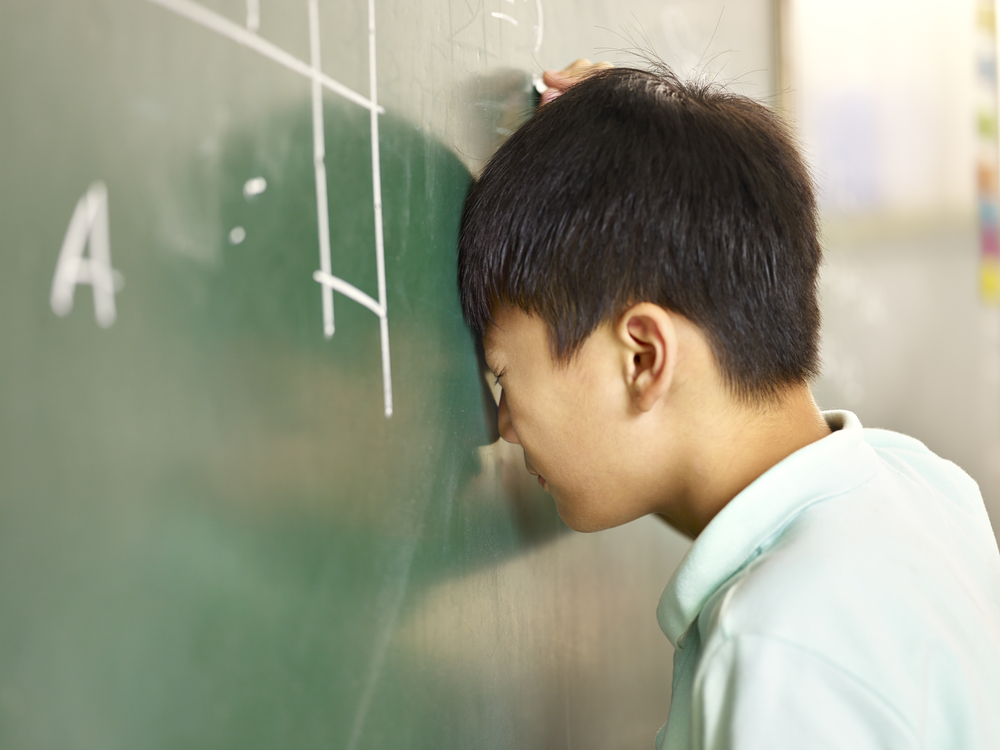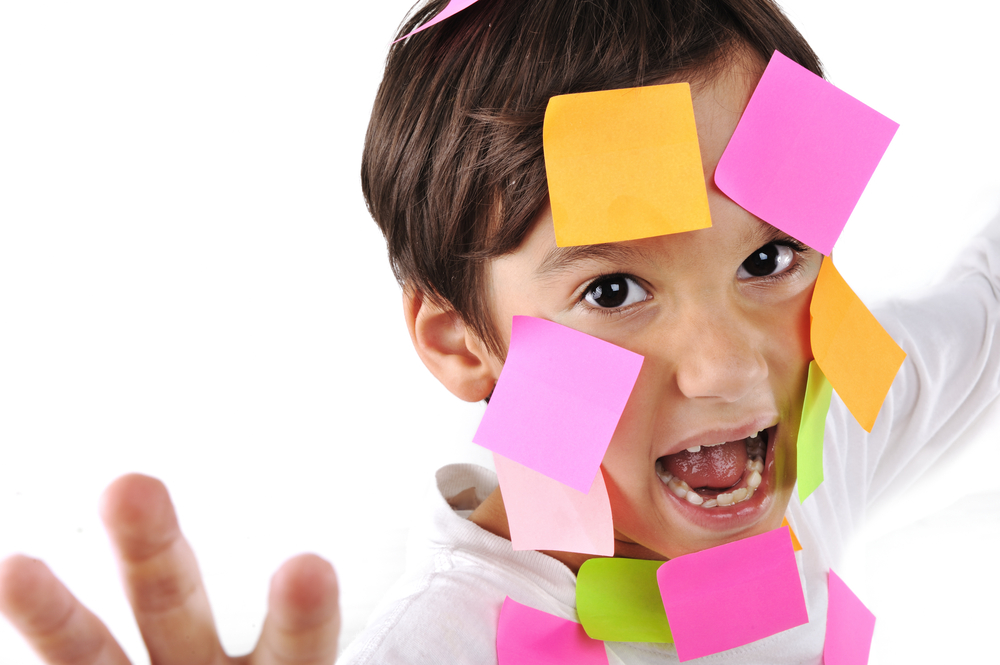Have you ever wondered why kids forget so much over the summer, and suddenly struggle when they get back to school? You aren’t alone, and summer learning loss (also called summer brain drain or the summer slide) is to blame—but you can make small changes to help them overcome it.
What Is Summer Learning Loss?

If you are wondering why kids forget so much over the summer, you’re not alone. Summer learning loss is a common problem that affects most students, and refers to a loss of academic skills or knowledge that students often go through over the summer holidays (or any longer holiday period) due to what they learned at school not being reinforced.
It is estimated that close to half of all students experience summer learning loss, with up to 20% of the year’s learning being lost over the weeks, and 40% over the years of school. But, there are things that you can do to help—you just need to understand the science behind why it happens first.
Why Do Kids Forget So Much During School Holidays?
Why kids forget so much over the summer comes down to memories not being reinforced over time, and therefore being lost over the weeks of freedom. We will go through key details of memory and forgetting below, so take notes!
Memory: How Does It Work?
Memory is a complex topic, but it is crucial to understand if we want to understand how forgetting happens. In order for us to remember, our brains need to change the new information into a different form that we can better store and cope with, known as memory encoding. For us to retain this information, it must be stored in a stable way, and this results in the sensory input being converted into a neural code, which the brain will be able to properly store and retrieve when necessary.
Factors such as relevance, repetition, and attention all impact the coding process, and there are three distinct types of memory coding: acoustic, visual, and semantic coding. Here are the basics:
- Acoustic Encoding – encoding happens based on auditory information/the sound of information (rhythm, pitch, patterns, etc) → listening to or repeating information out loud
- Visual Encoding – encoding happens based on visual information (e.g. colour, shape, size, etc), and information is stored in the visuospatial sketchpad → looking at information
- Semantic Encoding – encoding happens based on the meaning of the information. This information is easiest to encode, and is typically easier to remember → establishing context and meaning of information
Our memories are stored in different parts of the brain, and can be sensory memory storage, long-term memory storage, or short-term memory storage (active memory). In order for us to recall things after more than a few seconds, we need to move our short-term memories into long-term storage.
Long-term memory (which is thought to have infinite capacity) is split into explicit and implicit memories, there they are further divided into episodic and semantic memory for explicit memory, while implicit memory encompasses various memories and habits that we get through practice and repetition.
Memory retrieval allows us to access all the information in our brains and pick it out from our memory storage. For this to happen, the neural pathways (synapses) in our brains (which were created during the initial encoding process) must be reactivated, and the connection strengthened.
How Does Forgetting Happen?
When our brains fail to retain or retrieve information, we forget. This can happen for many different reasons, including retrieval failure, interference, encoding failure, motivated forgetting, and memory decay.
When it comes to fighting against the dreaded summer brain drain, or summer slide, the main culprit behind our children forgetting what they have learned over the holidays is memory decay. This is when memories fade over time due to the information and the memories not being reinforced, and the synapse not being strengthened. If a memory is not ‘exercised’ or ‘strengthened’, it is bound to fade into obscurity, and we will forget.
And this is the reality of why kids forget so much over the summer. So, if you can reinforce and strengthen the memories of what they have learned, memory decay (or, the summer slide), will not be an issue.
Which Subjects Are Most Affected by the Summer Slide?

The most common areas to suffer include maths and literacy, which can result in lower performance when school starts again, and lots of extra stress. However, all areas of education can be impacted, including physical abilities, so it’s important to exercise your mind and body.
What Are Some Tips for Parents to Keep Young Minds Active?

Once you know why kids forget so much over the summer, you can take steps to help prevent it. Luckily, there are lots of activities that you and your children can get involved in throughout the summer to boost brains and keep young minds active, from summer reading programmes to DIY science projects. However, keeping a healthy and easy-to-follow routine is also crucial, as this reduces stress and will make the period of time much easier to manage for everyone.
Participate in a Variety of Activities Throughout the Summer
There are all kinds of activities to dig into over the summer, so pick some and help your kids stay sharp. You can decide what schedule works for you and the household, and incorporate educational fun into every day—fun that will strengthen their neural pathways and cement key memories and information.
Top activities that can help to prevent summer brain drain:
- Take part in a summer reading programme
- Practice everyday maths
- Learn or build on a language
- Spend time exploring the garden (and the critters in it!)
- Go on educational trips
- Try out cool DIY science projects
- Do brain-boosting games and puzzles
- Limit aimless time on technology/screen time
- Stay physical and enjoy sports
- Dive into creative outlets like art or music
- Participate in a brain training program
Play an Active Role in Helping Your Children Retain Information
As a parent or guardian, it is your responsibility to help your children however you can. This can be done by providing your children with the resources, support, and more that they need. Take the time to work with them and help them as you play an active role in ensuring that they are being set up for success.
Use longer holidays to:
- Plenty of time for breaks and downtime
- Lots of healthy foods and snacks
- Build up responsibility with chores and housework
- Maintain strong and health sleeping patterns
- Spend time with family and other loved ones
- Be mindful of screen time and aimless scrolling
How The Brain Workshop Supports Summer Learning in Dubai

At The Brain Workshop, we want your children to thrive when they return to school after a long holiday. To help with this, our brain training programme is the perfect solution, offering enrichment and exercises that will not only allow your children to maintain all the knowledge they have gathered, but improve on it and improve cognitive processes such as memory, processing, attention, and more so that they can thrive.
Now that you know why kids forget so much over the summer, it’s time to do something about it—because every child deserves to feel confident in returning to school, and remember all the hard work they have put into learning.
Worried about summer brain drain? Book a session with The Brain Workshop and help your child stay ahead — even on holiday. Learn more about us at the Brain Workshop, meet our team, check out events, or even read our FAQ.






